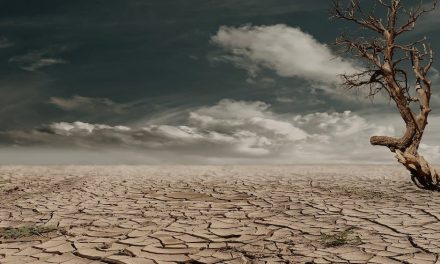Table of Contents
“Striking the perfect harmony between progress and heritage: Navigating the path for Arab leaders.”
Introduction
Introduction:
“Balancing Modernity and Tradition: The Challenge for Arab Leaders”
Arab leaders face a unique challenge in navigating the delicate balance between modernity and tradition. As the world rapidly progresses, embracing technological advancements and evolving social norms, Arab societies are deeply rooted in their rich cultural heritage and traditional values. This juxtaposition presents a complex dilemma for Arab leaders, who must strive to foster economic development, social progress, and political stability while preserving their cultural identity and meeting the expectations of their diverse populations. This essay explores the intricate task faced by Arab leaders in striking a harmonious equilibrium between modernity and tradition, highlighting the implications and potential strategies for addressing this challenge.
The Role of Arab Leaders in Preserving Cultural Heritage

The Arab world is a region rich in history and cultural heritage. From ancient civilizations to modern cities, the Arab world has a unique blend of tradition and modernity. Arab leaders play a crucial role in preserving this cultural heritage while also embracing the advancements of the modern world. However, striking a balance between modernity and tradition is not an easy task.
One of the primary responsibilities of Arab leaders is to protect and promote their country’s cultural heritage. This includes preserving historical sites, artifacts, and traditions that have been passed down through generations. Arab leaders understand the importance of cultural heritage in shaping national identity and fostering a sense of pride among their people.
To achieve this, Arab leaders have implemented various measures. They have established cultural institutions and museums to showcase and preserve their country’s heritage. These institutions not only serve as repositories of historical artifacts but also as centers for research and education. Arab leaders have also invested in the restoration and maintenance of historical sites, ensuring that they remain accessible to both locals and tourists.
Furthermore, Arab leaders have recognized the significance of intangible cultural heritage. They have taken steps to safeguard traditional practices, rituals, and knowledge that are at risk of being lost. This includes supporting local artisans, craftsmen, and performers who are the custodians of these traditions. By providing them with opportunities and resources, Arab leaders ensure that these traditions continue to thrive and evolve.
However, preserving cultural heritage does not mean rejecting modernity. Arab leaders understand the importance of embracing advancements in technology, science, and education. They recognize that progress is essential for the development of their countries and the well-being of their people. Therefore, they strive to strike a balance between preserving tradition and embracing modernity.
Arab leaders have invested in education and research to foster innovation and creativity. They have established universities and research centers that encourage critical thinking and scientific advancements. By providing their citizens with access to quality education, Arab leaders empower them to contribute to the modern world while remaining rooted in their cultural heritage.
Moreover, Arab leaders have embraced technology as a means to preserve and promote their cultural heritage. They have digitized historical documents, artifacts, and archives, making them accessible to a wider audience. This not only ensures the preservation of these valuable resources but also allows people from around the world to learn about Arab culture and history.
In conclusion, Arab leaders face the challenge of balancing modernity and tradition in preserving their cultural heritage. They understand the importance of protecting and promoting their country’s history, traditions, and artifacts. At the same time, they recognize the need to embrace advancements in technology, science, and education. By investing in cultural institutions, supporting local artisans, and embracing technology, Arab leaders strive to strike a balance between preserving tradition and embracing modernity. This delicate balance ensures that the Arab world continues to thrive and evolve while remaining connected to its rich cultural heritage.
Strategies for Arab Leaders to Promote Technological Advancements
Strategies for Arab Leaders to Promote Technological Advancements
In today’s rapidly evolving world, technological advancements have become a key driver of economic growth and social development. Arab leaders are faced with the challenge of balancing modernity and tradition, as they strive to promote technological advancements while respecting their cultural heritage. This article explores strategies that Arab leaders can employ to navigate this delicate balance and foster innovation in their countries.
First and foremost, Arab leaders must prioritize investment in education and research. By allocating resources to improve the quality of education and promote scientific research, leaders can lay the foundation for technological advancements. This includes fostering partnerships between universities and industries, encouraging collaboration between academia and businesses, and providing scholarships and grants to support students and researchers. By nurturing a culture of innovation and knowledge, Arab leaders can empower their citizens to contribute to technological advancements.
Furthermore, Arab leaders should focus on creating an enabling environment for entrepreneurship and innovation. This involves streamlining bureaucratic processes, reducing red tape, and providing incentives for startups and small businesses. By fostering a supportive ecosystem, leaders can encourage the development of innovative solutions to societal challenges. Additionally, leaders should establish technology parks and innovation hubs, where entrepreneurs, researchers, and investors can collaborate and exchange ideas. These hubs can serve as catalysts for technological advancements and economic growth.
Another strategy for Arab leaders is to promote digital literacy and access to technology. This includes investing in infrastructure to ensure widespread internet connectivity, particularly in rural areas. Arab leaders should also prioritize digital skills training programs to equip their citizens with the necessary knowledge and skills to navigate the digital world. By bridging the digital divide, leaders can empower their citizens to fully participate in the digital economy and benefit from technological advancements.
Moreover, Arab leaders should actively engage with the private sector and international partners to attract foreign direct investment (FDI) in the technology sector. This can be achieved by offering incentives such as tax breaks, grants, and streamlined regulations. By attracting FDI, leaders can bring in expertise, technology, and capital that can accelerate technological advancements in their countries. Additionally, leaders should foster collaboration with international organizations and participate in global initiatives to exchange best practices and learn from the experiences of other countries.
Lastly, Arab leaders should prioritize the protection of intellectual property rights (IPR) to encourage innovation and creativity. By implementing robust IPR laws and enforcing them effectively, leaders can provide a secure environment for entrepreneurs and inventors to invest in research and development. This will incentivize the creation of new technologies and ensure that innovators are rewarded for their contributions. Furthermore, leaders should promote a culture of respect for intellectual property, both domestically and internationally, to foster a conducive environment for technological advancements.
In conclusion, Arab leaders face the challenge of balancing modernity and tradition as they strive to promote technological advancements. By prioritizing investment in education and research, creating an enabling environment for entrepreneurship, promoting digital literacy and access to technology, engaging with the private sector and international partners, and protecting intellectual property rights, leaders can navigate this delicate balance and foster innovation in their countries. By embracing technological advancements while respecting their cultural heritage, Arab leaders can position their countries at the forefront of the digital revolution and drive economic growth and social development.
Balancing Economic Development with Traditional Values in Arab Societies
Balancing Economic Development with Traditional Values in Arab Societies
In recent years, Arab societies have been grappling with the challenge of balancing economic development with traditional values. As these societies strive to modernize and compete in the global economy, Arab leaders face the delicate task of preserving their cultural heritage while embracing progress. This article explores the complexities of this challenge and the strategies that Arab leaders are employing to strike a balance between modernity and tradition.
Arab societies have a rich history and a strong sense of cultural identity. Traditional values, rooted in religion and customs, have shaped these societies for centuries. However, in today’s interconnected world, economic development is seen as a key driver of progress and prosperity. Arab leaders recognize the need to adapt to the demands of the global economy, but they also understand the importance of preserving their unique cultural heritage.
One of the main challenges Arab leaders face is finding ways to promote economic development without compromising traditional values. This requires careful planning and a nuanced approach. Arab societies are diverse, with different levels of economic development and varying degrees of openness to change. Leaders must take into account these differences and tailor their strategies accordingly.
One strategy that Arab leaders are employing is promoting entrepreneurship and innovation while staying true to their cultural values. They are investing in education and technology, creating an environment that fosters creativity and encourages young people to pursue their ideas. At the same time, they are ensuring that these initiatives align with their cultural values, promoting ethical business practices and social responsibility.
Another approach that Arab leaders are taking is investing in sectors that are compatible with their traditional values. For example, they are focusing on sectors such as tourism, hospitality, and Islamic finance, which not only contribute to economic growth but also align with their cultural values. By capitalizing on their unique cultural heritage, Arab societies can attract tourists and investors while preserving their traditions.
Furthermore, Arab leaders are working to strike a balance between economic development and social cohesion. They recognize that rapid economic growth can lead to social inequalities and cultural tensions. To address this, they are implementing policies that promote inclusive growth and social welfare. They are investing in healthcare, education, and infrastructure, ensuring that the benefits of economic development are shared by all segments of society.
Additionally, Arab leaders are engaging with their citizens and involving them in the decision-making process. They are creating platforms for dialogue and encouraging public participation. By involving their citizens in shaping the future of their societies, Arab leaders are ensuring that the development process is inclusive and reflects the aspirations and values of their people.
In conclusion, balancing economic development with traditional values is a complex challenge for Arab leaders. They must navigate the demands of the global economy while preserving their cultural heritage. By promoting entrepreneurship and innovation, investing in sectors compatible with their traditions, and prioritizing social cohesion, Arab leaders are striving to strike a balance between modernity and tradition. Through careful planning and inclusive decision-making, they are working towards a future that embraces progress while staying true to their unique cultural identity.
The Importance of Education and Innovation in Arab Leadership
The importance of education and innovation in Arab leadership cannot be overstated. In a rapidly changing world, Arab leaders face the challenge of balancing modernity and tradition to effectively govern their countries. Education and innovation are key factors in achieving this delicate balance.
Education plays a crucial role in shaping the future of any nation. Arab leaders recognize this and have made significant efforts to improve their education systems. They understand that a well-educated population is essential for economic growth, social development, and political stability. By investing in education, Arab leaders are equipping their citizens with the knowledge and skills needed to thrive in a globalized world.
Innovation is another critical aspect of Arab leadership. In today’s fast-paced and technology-driven world, innovation is the key to staying competitive and relevant. Arab leaders understand that they must foster a culture of innovation to keep up with the rapidly changing global landscape. By encouraging entrepreneurship, investing in research and development, and promoting technological advancements, Arab leaders are paving the way for their countries to become leaders in various industries.
However, striking a balance between modernity and tradition is not an easy task. Arab societies are deeply rooted in tradition and cultural values, which can sometimes clash with the demands of modernity. Arab leaders must navigate this delicate balance carefully, ensuring that progress does not come at the expense of their cultural heritage.
One way Arab leaders are addressing this challenge is by promoting a modern and inclusive education system that also respects traditional values. They understand that education should not only focus on academic knowledge but also on instilling moral values and a sense of national identity. By incorporating traditional values into the curriculum, Arab leaders are ensuring that their citizens remain connected to their cultural roots while also preparing them for the demands of the modern world.
Innovation, too, must be approached with caution. Arab leaders recognize the need to embrace technological advancements and foster a culture of innovation, but they also understand the importance of preserving their cultural heritage. They are finding ways to promote innovation while also respecting and preserving their traditional arts, crafts, and cultural practices. By doing so, Arab leaders are ensuring that their countries continue to thrive economically and technologically while also preserving their unique cultural identities.
Education and innovation are not only important for the development of Arab nations but also for their global standing. Arab leaders understand that to be respected and influential on the world stage, they must invest in education and innovation. By producing highly skilled and innovative individuals, Arab countries can contribute to global advancements in various fields, such as technology, science, and arts.
In conclusion, the importance of education and innovation in Arab leadership cannot be overstated. Arab leaders face the challenge of balancing modernity and tradition, and education and innovation are key factors in achieving this delicate balance. By investing in education, fostering a culture of innovation, and respecting their cultural heritage, Arab leaders are equipping their citizens with the knowledge and skills needed to thrive in a rapidly changing world. Furthermore, they are positioning their countries to be respected and influential on the global stage. The challenge for Arab leaders is great, but with a focus on education and innovation, they can successfully navigate the complexities of modernity and tradition.
Q&A
1. What is the challenge for Arab leaders in balancing modernity and tradition?
The challenge for Arab leaders is to find a balance between embracing modernity and its associated advancements while also respecting and preserving traditional values and cultural heritage.
2. Why is it important for Arab leaders to address this challenge?
Addressing this challenge is important as it allows Arab leaders to navigate the complexities of a rapidly changing world while maintaining social cohesion and stability within their societies.
3. How can Arab leaders approach this challenge?
Arab leaders can approach this challenge by promoting education and awareness about modernity, encouraging dialogue between different generations, and implementing policies that integrate modern practices while respecting traditional values.
4. What are the potential benefits of successfully balancing modernity and tradition for Arab leaders?
Successfully balancing modernity and tradition can lead to social progress, economic development, and improved quality of life for Arab societies. It can also foster a sense of identity and pride in cultural heritage while embracing the opportunities of the modern world.
Conclusion
In conclusion, Arab leaders face the challenge of balancing modernity and tradition in their societies. This delicate task requires them to navigate the demands of a rapidly changing world while also respecting and preserving their cultural and historical heritage. The successful management of this challenge is crucial for the stability and progress of Arab nations, as it can foster social cohesion, economic development, and political stability. Arab leaders must find innovative ways to embrace modernity without compromising their traditions, ensuring a harmonious coexistence between the old and the new.




